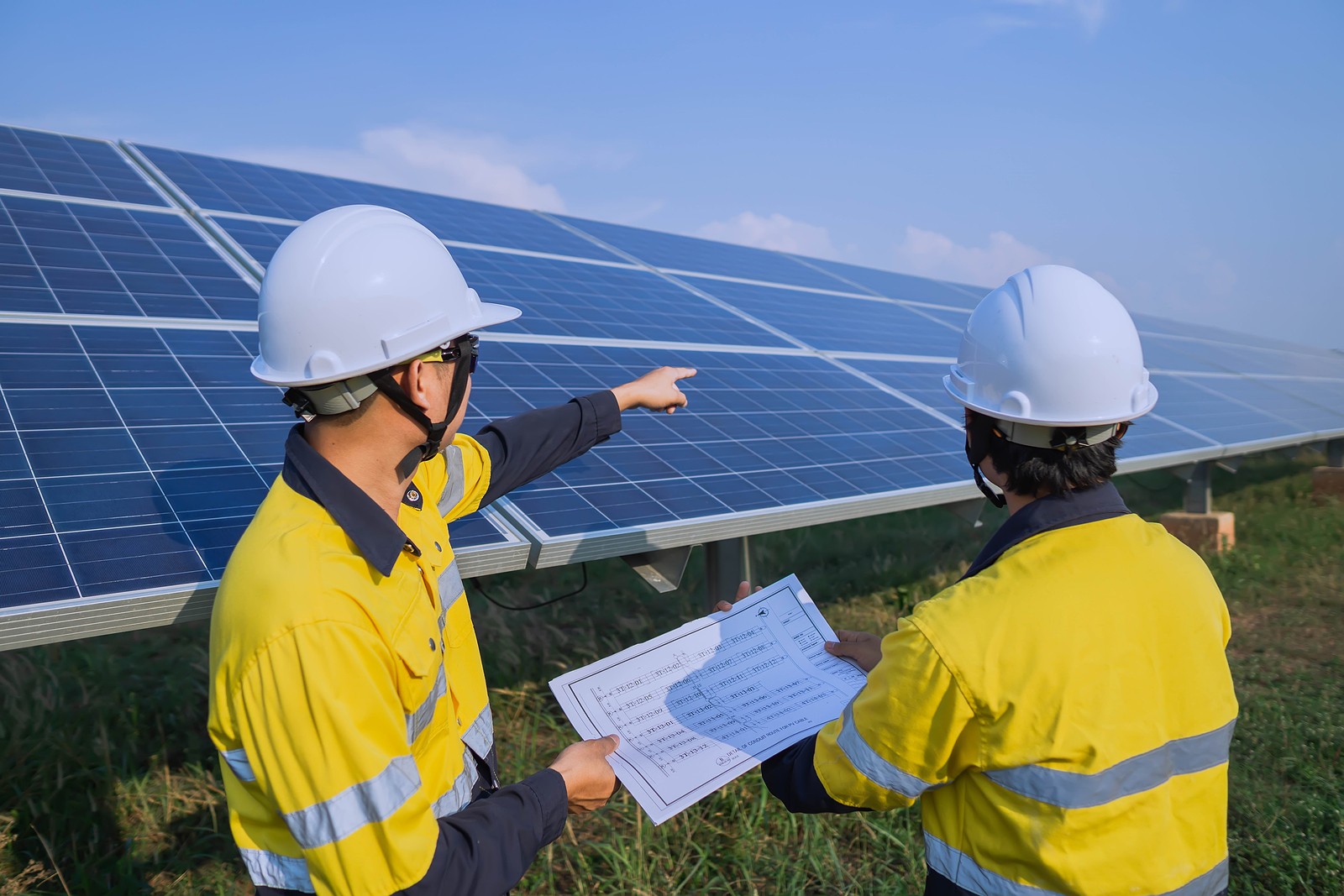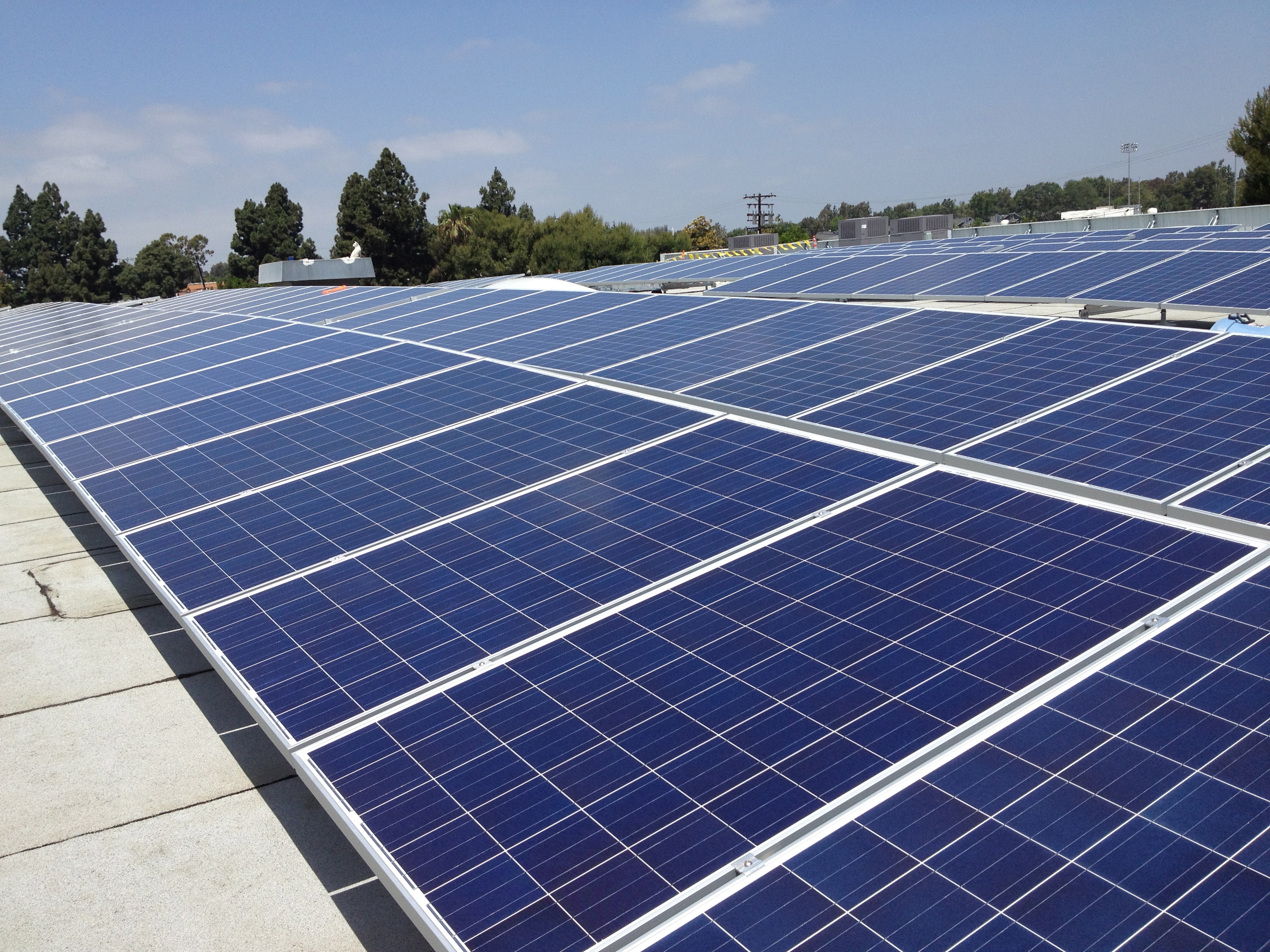Just How to Select the Right Solar Power Installation for Your Energy Demands
Picking an ideal solar energy setup calls for a methodical strategy that begins with a clear understanding of your energy intake patterns and awaited future demands. Factors such as the kind of solar innovation, installation expenses, and offered motivations play crucial roles in making a notified choice - solar photovoltaic. The selection of a qualified installer can not be forgotten, as their knowledge can dramatically influence the efficiency and longevity of your system. As you consider these factors to consider, you may locate that the ideal path is not constantly one of the most evident one.
Assess Your Energy Needs
Examining your energy needs is an important initial step in the solar power installation process. Understanding your existing and future power intake will lead the style of an effective solar system customized to your needs.
Think about seasonal variants in energy usage, as certain months might demand more power as a result of heating or air conditioning demands. Additionally, evaluate any organized changes in way of living or home, such as the acquisition of electric vehicles or home expansions, which may boost your energy needs in the future.
Once you have a thorough understanding of your energy usage, you can establish the suitable solar capability needed to fulfill those demands. This assessment not only helps in sizing the solar installment however also educates choices about power storage space solutions and possible grid link needs. solar photovoltaic. Eventually, precisely evaluating your energy needs makes sure that your solar energy system operates effectively, supplying the advantages of renewable resource abreast with your intake patterns

Evaluate Solar Modern Technology Options
When taking into consideration a solar energy installment, it is crucial to review the numerous solar modern technology options readily available to ensure the system aligns with your energy needs and spending plan. The primary modern technologies include monocrystalline, polycrystalline, and thin-film solar panels, each offering distinct advantages and drawbacks.
Monocrystalline panels are understood for their high efficiency and efficiency in restricted area, making them appropriate for property installments with much less roofing location. They have a tendency to be much more pricey. Polycrystalline panels, while slightly much less reliable, are generally extra economical and can be a good selection for bigger setups where room is not a restraint. Thin-film solar panels are lightweight and adaptable, perfect for non-traditional surfaces, but they generally have lower efficiency and call for more area to generate the very same power outcome.
In enhancement to panel types, think about solar inverters, which transform the straight current produced by the panels right into alternating existing for home use. String inverters, microinverters, and power optimizers each have distinct benefits that can impact system performance. Assessing these alternatives will certainly assist you make an informed decision that satisfies your power requirements properly.
Take Into Consideration Installment Prices
Recognizing installation costs is critical for anybody thinking about a solar power system. These costs can differ dramatically based upon a number of factors, including system dimension, sort of panels, and installment complexity. A regular household solar setup might range from $15,000 to $30,000 before incentives, which can be a considerable in advance financial investment.
To precisely assess installment costs, it is vital to obtain comprehensive quotes from numerous solar service providers. These quotes need to damage down the costs of tools, labor, permits, and any type of added devices needed for the installment. Pay very close attention to the quality of materials being used, as higher-quality panels and inverters can cause better efficiency and longevity, potentially countering higher initial prices.
Furthermore, think about the long-term implications of installment expenses. A cheaper installation could conserve cash ahead of time yet could result in higher maintenance prices or decreased energy manufacturing over time. It is additionally recommended to assess funding options, such as solar financings or leases, which can affect your overall monetary commitment.
Research Resident Rewards
Exploring local rewards can substantially influence the overall expense of a solar power installation. Several areas supply a selection of monetary motivations intended at promoting sustainable energy use, making solar power extra available and economical for property owners and organizations alike.
These rewards may include government tax obligation credit ratings, state rebates, and neighborhood utility business programs that supply cash incentives or web metering options. For circumstances, the Federal Financial Investment Tax Credit (ITC) permits you to subtract a considerable percent visit our website of your solar installment expenses from your government tax obligations. State-specific incentives can further enhance these savings, usually in the type of straight cash money rebates or tax obligation credits.
Furthermore, some city governments may supply real estate tax exemptions for solar installments, making certain that your investment does not enhance your property tax obligation. Researching these incentives can discover considerable financial savings, which can affect your decision on the size and kind of solar system to set up.

Choose a Trusted Installer
Picking a credible installer is important to making sure the success and longevity of your solar energy system. The installation procedure dramatically influences the efficiency and efficiency of your photovoltaic panels, making it necessary to select a service provider with a tested record. Begin by looking into neighborhood installers through on-line testimonials and testimonies. Sites such as the Better Company Bureau can supply understanding right into customer complete satisfaction and solution reliability.
Following, confirm the installer's qualifications, including licenses, accreditations, and insurance. A reliable installer ought to hold certifications from recognized organizations, such as the North American Board of Going Here Licensed Energy Specialists (NABCEP), suggesting a high degree of expertise. Furthermore, ask about the installer's experience with similar tasks, specifically in your location, as regional climate and regulations can influence installation practices.
Demand several quotes and compare them not just on rate however additionally on the quality of devices and guarantees used. A reliable installer ought to site give clear details about their services and products, assisting you make an educated choice. By spending time in picking a credible installer, you will certainly boost the general performance and longevity of your solar power system.
Final Thought
Finally, choosing the suitable solar power installment necessitates a thorough analysis of power requirements, an understanding of offered solar technologies, and a cautious factor to consider of installment prices. Exploring regional motivations can improve financial benefits, while selecting a credible installer makes certain quality handiwork and integrity. solar photovoltaic. By methodically examining these aspects, individuals can attain an ideal solar solution that fulfills both existing and future power demands, eventually adding to sustainable power techniques and cost financial savings in time